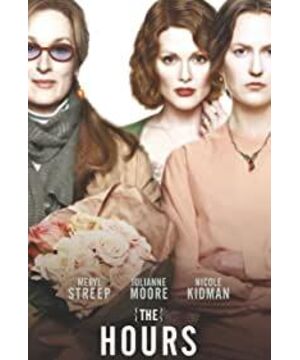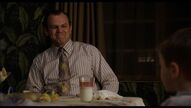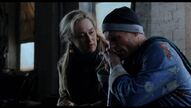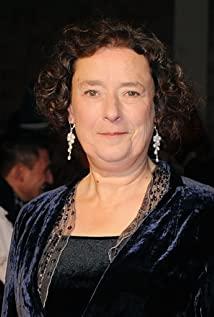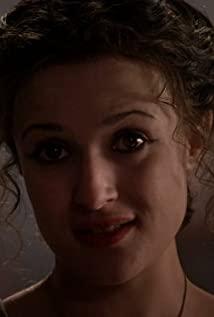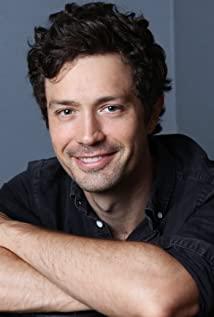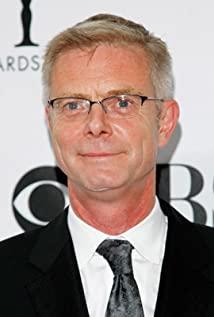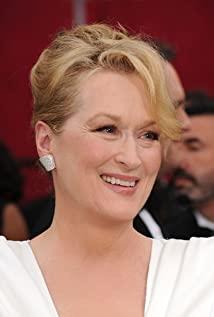When you like something too much, it is inaccessible and indescribable. That's probably how I feel about The Hours.
I've watched this movie about four or five times, and every time it's like I'm obsessed with it. I've wanted to write something countless times, but every time I don't know where to start, I just give up. I like every character in it so much, they are all worth pondering. Or rather, all alive, living in the ongoing death.
The film tells the day of three women in different times and places: Virginia Woolf, who conceived a novel while recuperating in Richmond, a suburb of London in 1923, and read Woolf's novel "Daily" at her home in Los Angeles in 1951. Laura Brown of Mrs. Lowe, and Clarissa Dalloway, editor-in-chief, preparing a party in early 2000s New York. Through parallel editing, the days of these three women are subtly connected in different time and space, and through small fragments.
1. Virginia Woolf
After Woolf woke up, he did not wash up immediately, but was thinking about something. At this time, the husband went home to see the doctor, the doctor said that Woolf did not deteriorate. She got up to wash up, went downstairs to meet her husband, and then said that she had the idea of the first sentence of the novel, ignoring her husband's request for a good meal. She doesn't seem to care about her physical condition. Immediately, her husband reluctantly agreed to let her go back to the room and write well. "Mrs. Dalloway said she was going to buy the flowers herself," Woolf wrote.
In less than four minutes and a few words at the beginning, there is a lot of background: Woolf's health is not good - she often suffers from insomnia, headaches, irregular meals, and she needs a doctor for a long time. She is a writer and her husband Leonard runs a publishing house. She has a very gloomy temperament, which may come from her illness. And what I think is the most wonderful is that the husband's deep love for her is explained in very little space.
I love performances with very little emotional granularity. In the opening scene, although Woolf rejected her husband's request to have dinner with her, Nicole Kidman expressed her firm opinion through several eyes, but this insistence Not because of being cold to her husband, but more out of self-seeking superiority over everything else. Likewise, Leonard, through a few short greetings and reluctance to say anything after agreeing to let Woolf continue his work, presents a very typical image of a taciturn man in England. Although he was taciturn, he could still feel his concern for his wife's illness and the kind of support that he hoped she would be able to do the work he liked.
One day, taking advantage of the good weather, Woolf asked her husband's permission to go out for a walk. She was thinking, I'm going to kill my hero, she's going to die for something trivial. Then came her sister's visit, and she and her little niece gave a quiet funeral to a dead bird. Dying quietly makes the bird look smaller, and she decides to change the fate of the book's heroine. Maybe her sister thought that Woolf's mental state was worse, and she didn't want to stay with the three children for a long time and left in a hurry. Woolf was very disappointed and kissed his sister fiercely, and more of it was an expression of anger at the current stagnant rural life. From his sister's reaction, Woolf understood that his condition was not improving.
So after her sister left, Woolf began to struggle, and had the most exciting opposite scene with her husband Leonard on the train platform. While desperately begging, I would rather live a little longer in chaos than die in silence. While letting go out of love. Leonard's reaction was too touching. He knew that once Woolf returned to London, it meant that he was about to lose Woolf forever. But out of love, he can only let Woolf choose the form of his life.
During the night, Leonard asked Woolf why people always die in your books. Woolf said that the dead give the living a better understanding of what it means to be alive.
Nicole Kidman's dramatic tension in this drama is the most amazing of the three female leads. I remember the first time I saw this film, smacking my tongue at this perfect Woolf, thinking it was impossible not to win an award. A check, Nicole Kidman really won the Golden Globe and the Silver Bear Award for this film. Truly one of the most impressive performances I've ever seen.
2. Laura Brown
Lola's husband came home and bought her bright yellow flowers. She was awakened, barely sitting upright, and read the first sentence of Mrs Dalloway. It was her husband's birthday, and she still felt so sleepy that she seemed to have done her best to eat breakfast. For her husband's concern for her, Lola seems to be more of a burden and guilt. Lola decides to pull herself together and make a cake for her husband, even though she's not good at it at all.
Lola's son, Little Richard, who will be known later as the first love of female editor Clarissa, seems to be much more sensitive than other children, and has had an exceptionally sensitive sense of emotional changes since childhood. This can also be regarded as the source of his poetic qualities in advance. Little Richard asked Lola if we didn't make Daddy's cake because Daddy didn't know we loved him. He stared silently at his mother, giving a deep, warm kiss to the female neighbor who seemed to be able to do everything but couldn't get pregnant. He looked at his mother who was driving away, seemed to have a foreboding of the impending misfortune, and shouted "No!". After Lola came back to pick him up, he solemnly told his mother "I love you".
There are two very interesting passages here, one is a surprise visit by female neighbor Katie, and the other is Lola driving to the hotel to attempt suicide but change her mind.
After Lola makes the cake, the female neighbor Katie makes a surprise visit. Katie was the kind of self-assured, nasty neighbor who knew everything and seemed sociable. But when she talked about Lola's newly read book, the hostess was exactly in line with her self-confidence and inner fragility, and Katie revealed that she had a foreign body in her uterus and was unable to conceive, and she was going to have an operation in the afternoon without even her husband knowing fact. In another subsequent paragraph, it is explained that Lola believes that only she knows that Katie may disappear. For Lola, who is deeply depressed, she can fully understand this huge pain that she has always had to bear alone.
That way, it's better to comprehend Lola's sudden kiss to Katie, the most incomprehensible in the whole film. I don't think this kiss is homosexual, but more like a strong outpouring of empathy. They also have a perfect life in the eyes of outsiders, but face the same unbearable pain. When Lola kissed Katie and asked her if she didn't mind, Katie was the perfect and confident hostess again, like a machine, just begging for help taking care of the puppy, and thinking the doctor could cure her of course , without the slightest doubt.
The setting of this supporting role is really interesting.
Also because of Katie's visit, Lola had the idea of committing suicide. But when she watched "Mrs. Dalloway", she gave up death and chose another way to live. There is an explanation in the later meeting of Lola and Clarissa after Richard's death, she must abandon her seemingly happy but suffocating life to survive, this and Clarissa's paragraph, Richard's ex-lover Louis Waters left him for the same reason - "The day I left him...was the first time I felt free in years."
Julian Moore's morbid smile is always in place, and his cooperation with Little Richard is 1+1>2. An impressive TED talk about depression I saw earlier, it said that depression is not "sad and low", but "de-energized", "Much much too much effort" every day, Julian Moore It should be regarded as infinitely close to the depression I imagined, very in place, as if it can be touched.
3. Clarissa Dalloway
In the morning, Clarissa finds out that her partner Sally is cheating on her. But she still has to throw a party for her first love, Richard, who has been caring for years with AIDS, and who has just achieved his highest poet achievement. She goes to Richard's place, but Richard doesn't want to be at the party and asks her to let him go so he can choose to die. He said sharply, "Mrs Dalloway, always trying to cover up the silence with party hilarity." When Richard pointed out that he was only alive to satisfy Clarissa, Clarissa, as her daughter said, Annoyed at being told the truth. Her own life seemed trivial and stupid, and she felt that her happiness had gone with Richard at a young age, leaving only a fragmented life.
Later, Richard chose to terminate his life in front of her. As Woolf said, the death of one person gives revelation to another life. That night, Clarissa meets Lola, the "monster" mother who abandoned Richard's family. Laura finally chose to leave, which is equivalent to giving up death and choosing life, which may sound cruel, but it is the most basic right of choice as a human being, which corresponds to Woolf returning to London to meet the death that will eventually come. , choosing how to live is the basis of human existence.
Clarissa breaks free from Richard, the shackles of youth, and through a kiss, shows the choice of starting again with Sally.
---
To be honest, although the Silver Bear Award was shared by the three heroines back then, I really couldn't be satisfied with Aunt May's performance. I've never really understood Aunt May's acting, and it always seemed to me to be overdone, especially the scene with Richard's ex-lover, Louis, that really struck me as overblown and dramatic. Maybe it was because there was no better candidate at the time. I think every scene of Aunt May was unsatisfactory, and the two scenes with Richard were perfectly crushed. Very unfortunate casting.
Many people think that this is a female film, but today, when the term "female film" has been demonized, I think it is a film that considers the way of life from the perspective of women. The three heroines have come to this most ordinary day in their lives. It is the same as other days, but it is different in an instant. And the choices made on this day paint the way they live. Woolf chooses to live briefly and feverishly, even if it ends up dying soon. Lola chooses to escape and get a chance to live. And Clarissa broke free from the shackles of her former lover's death and set off again.
It's all just the shape of life they choose.
View more about The Hours reviews


